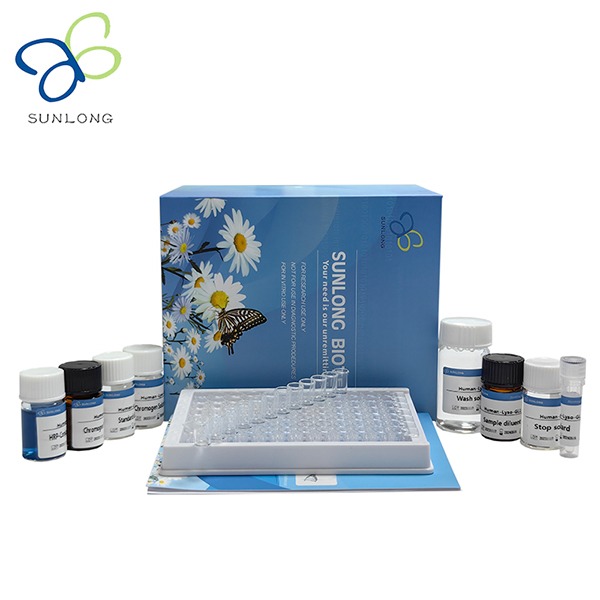Specifications:
| Application | ELISA-Based Assays |
| Storage Temperature | 2-8°C |
| Product Type | Elisa Kit |
| Product Grade | Molecular Biology |
The Human West Nile Virus (WNV) ELISA Kit is a highly sensitive and specific assay designed for the quantitative detection of WNV antibodies in human serum, plasma, urine, culture media, and other biological fluids. This kit is essential for research into West Nile Virus infections, immune responses, and related epidemiological studies.
Purpose
- Quantification of WNV Antibodies:
- Detect and measure WNV-specific antibodies in human biological samples to study immune responses and disease progression.
- Sample Compatibility:
- Suitable for serum, plasma, urine, culture media, and other biological fluids.
Sample Preparation
1. Serum Preparation
- Collect whole blood and allow it to clot at room temperature for 10–20 minutes.
- Centrifuge at 2,000–3,000 rpm for 20 minutes to separate the serum.
- Re-centrifuge if precipitates appear during storage.
2. Plasma Preparation
- Collect whole blood into tubes containing anticoagulants (e.g., EDTA or citrate).
- Incubate at room temperature for 10–20 minutes.
- Centrifuge at 2,000–3,000 rpm for 20 minutes to obtain plasma.
- Re-centrifuge if necessary.
3. Urine Samples
- Collect urine in aseptic tubes.
- Centrifuge at 2,000–3,000 rpm for 20 minutes and carefully collect the supernatant.
- Re-centrifuge if precipitates form during storage.
4. Cell Samples
- For cell secretions, collect culture supernatants in aseptic tubes and centrifuge at 2,000–3,000 rpm for 20 minutes.
- For intracellular components:
- Dilute cells in PBS (pH 7.2–7.4) at 1×10⁷/mL.
- Disrupt cells via repeated freeze-thaw cycles.
- Centrifuge at 2,000–3,000 rpm for 20 minutes and collect the supernatant.
5. Tissue Samples
- Cut and weigh tissue samples, then freeze in liquid nitrogen and store at -80°C.
- Homogenize samples in PBS (pH 7.4) at 4°C.
- Centrifuge at 2,000–3,000 rpm for 20 minutes and collect the supernatant.
Important Notes
- Perform ELISA assays as soon as possible after sample collection.
- Store samples at -20°C if immediate testing is not feasible.
- Avoid repeated freeze-thaw cycles to preserve sample integrity.
- Do not use samples containing sodium azide (NaN₃) as it inhibits HRP activity.
Applications
- Infectious Disease Research:
- Study immune responses to West Nile Virus (WNV) infections.
- Serological Studies:
- Monitor WNV prevalence and immune response in populations.
- Epidemiological Research:
- Investigate WNV outbreaks and geographic spread.
- Clinical Diagnostics Research:
- Support diagnostic evaluations of WNV-related infections.
- Vaccine Development:
- Assess antibody responses to potential WNV vaccines.
Advantages
- High Sensitivity and Specificity:
- Detects WNV-specific antibodies with minimal cross-reactivity or interference.
- Wide Sample Compatibility:
- Validated for serum, plasma, urine, cell culture supernatants, and tissue homogenates.
- Ease of Use:
- Pre-coated plates and ready-to-use reagents simplify assay execution.
- Reproducibility:
- Delivers consistent results for reliable data interpretation.
Storage and Stability
- Store all kit components at 2–8°C to maintain reagent integrity.
- Avoid repeated freeze-thaw cycles to ensure assay reliability.
The Human West Nile Virus (WNV) ELISA Kit is a vital tool for researchers studying immune responses to WNV, monitoring disease progression, and assessing vaccine efficacy. Its precision, user-friendly design, and broad compatibility make it indispensable for clinical and experimental applications.
- Antibody Description: IgM IgG




 0
0
